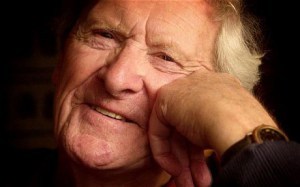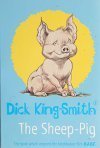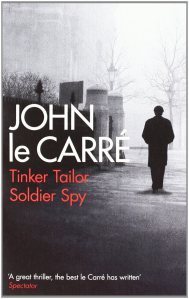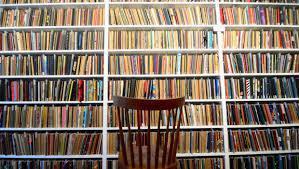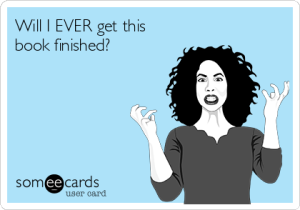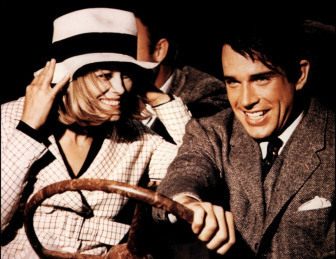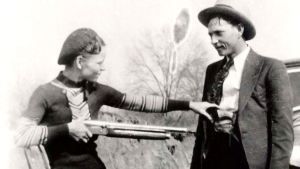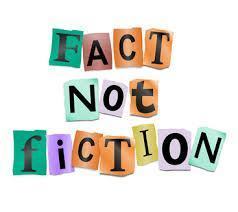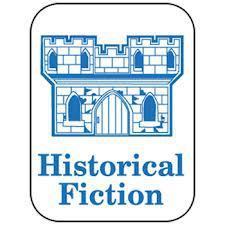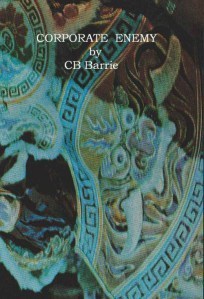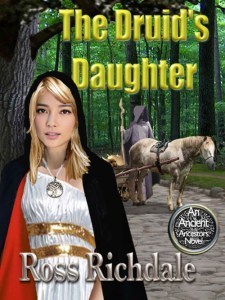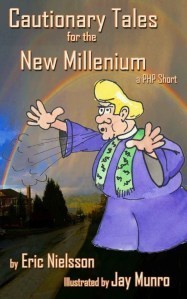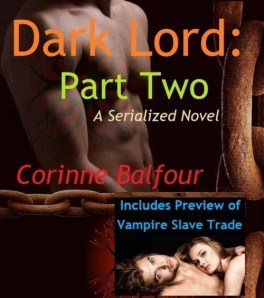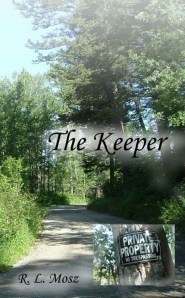Louise M.H. Miller's Blog, page 15
March 27, 2014
On 27th March 1922….
On 27th March 1922 in the village of Bitton, Gloucestershire, Ronald Gordon King-Smith was born. He is better known by his pen name Dick King-Smith, prolific writer of children’s stories, most famously The Sheep Pig (UK) or Babe the Gallant Pig (US).
After serving with the Grenadier Guards in Italy during the Second World War, he became a farmer for 20 years before turning to teaching and writing. His first book was published in 1978, called The Fox Busters. He went on to write over a hundred books.
Some lovely quotes by him:
From his books:
“That’ll do, Pig. That’ll do.”
― Dick King-Smith, The Sheep Pig
“Patience is a virtue,
Virtue is a grace.
Grace is a little girl
Who would not wash her face.”
― Dick King-Smith, Lady Daisy
From the man himself:
“Much as I love ‘The Wind in the Willows’ and the works of Beatrix Potter, I never dress my animals in clothes. They behave as animals should behave, with the exception that they open their mouths and speak the queen’s English.”
“Writing my books is like handing out presents. Giving children pleasure gives you a wonderful sort of Father Christmassy feeling.”
“One of the nicest things was that the actor who played Farmer Hogget on-screen was the image of the man I had in my head eight or nine years before, right down to the last eyelash.”
“The single nicest thing I think about my success is not the critical acclaim or the money – it’s the tens of thousands of letters I get from children all over the world.”
Filed under: Uncategorized Tagged: babe, children's books, children's writers, Dick King-Smith, great writers, the sheep pig, this day in history


March 25, 2014
Disappointing ‘Must-Read Books’
Must-read book lists are everywhere. And the majority of the books on them are well worth reading. But what about those ones you read but didn’t enjoy. Is it fair to feel let down and cheated? With all the hype and buzz about apparent excellent ‘classic’ books, is it fair to assume that everyone will enjoy it? The simple answer has to be no.
Everyone has different tastes when it comes to life; reading included. One person may have loved one book or one film for instance, and another loathe it. We’ve all got our own opinions haven’t we? We’re all not bound to like the same books. But Must Read Books go beyond the simple recommendation between friends.
I’m saying this now so I don’t get shot down when I reveal two ‘must-read’ books that I didn’t enjoy. I was disappointed with them both, the second I found frankly irritating. And yes I did feel cheated. I’d settled down to really enjoy them, thinking that I would. But turning the final page, and reading the last sentence, well I felt utterly let down.
Number One disappointing ‘Must-Read’ is The English Patient by Michael Ondaatje.
Number Two disappointing ‘Must-Read’ is The Catcher in the Rye by J. D. Salinger.
I can’t really go into why I didn’t enjoy them: I just didn’t. And I know that’s not very reviewy of me.
I can’t be the only one who has been let down in this way?
What books have you been disappointed with?
Filed under: Uncategorized Tagged: book reviews, disappointing reads, must read books, prize winners, the catcher in the rye, the english patient


March 21, 2014
Book Review: Tinker Tailor Soldier Spy
Now Tinker Tailor Solider Spy has been on my personal ‘to-read’ list for ages. And so has the author John Le Carre. Le Carre is just one of those authors that has to be read, in my opinion, at least once. The same goes for the likes of classics like Charles Dickens, or Jane Austen. ‘Modern-day’ writers like Agatha Christie, Ian Fleming, Stephen King and Salman Rushdie also make this list (as do many many others).
So I finally picked it up the other day and gave it a go. And I realise now why it was on my ‘must be read’ shelf. It is one of the best thrillers I have ever read. It has layer within layer that keeps you intrigued and gripped from the very off.
The opening line, ”The truth is, if old Major Dover hadn’t dropped dead at Taunton races, Jim would never have come to Thursgood’s at all.”, is full of intrigue who is Major Dover, who is this Jim, and what is Thursgood’s?
Set in an era where men wore buttoned-up suits and spoke still fondly of the dwindling British Empire, and in the midst of the Cold War. This is shown beautifully through the style of his writing.
Truthfully, I watched the film starring Gary Oldman as George Smiley before I read the book. However, I couldn’t really remember the film at all, and which actor played which character (apart from Oldman as Smiley) and I couldn’t remember the ending. So my imagination wasn’t tainted by watching the film first. Of which I am glad.
The novel is a dense puzzle where espionage, anxiety and paranoia are key players. It is a wonderfully complex novel with multiple layers to discover as George Smiley delves deeper and deeper into the mysteries of the Circus to uncover the mole. Dragged from sudden retirement Smiley uses all his expertise to ferret out the mole, while constantly looking over his shoulder in his paranoia that his training afforded him. And like Alice in Wonderland he cannot guess how deep the rabbit hole goes: into the very depths of the Circus.
Simply brilliant. Wonderfully complex. A definite must-read.
This is the first Le Carre novel that I have read, and it most certainly will not be the last.
4 out of 5 stars.
Filed under: Uncategorized Tagged: Gary Oldman, George Smiley, John Le Carre, must read, must read novels, review, Tinker Tailor Soldier Spy


March 19, 2014
Books to Read Lists Galore
I don’t know if you’ve ever noticed but there are so many book recommendation lists out there. So many lists of books people tell us we have to read. And I’m sort of exhausted by it – but yep I’m my own devil because I do go through them and check them out.
16 Works That Ernest Hemingway Thought a Young Writer Should Read…..Top Ten Books to Read for Writers You Need to Read Now….30 Books to Read Before You’re 30…..Books to Read Before You Die (a Google search for this will bring up loads of examples)……the list literally goes on and on.
These lists are a good tool if you’re stumped what to read next – or if you’re looking for a recommendation for a book that has been given a glowing review. I use the BBC Big Read from all the way back in 2003 - http://www.bbc.co.uk/arts/bigread/top100.shtml – if I can’t decide what to read next – this is never usually a massive problem for me.
But I don’t agree that they should be followed verbatim. Read what you want to. Read what you enjoy. And throw in a couple of these apparent ‘must-reads’ when you want too. For the most important thing a writer should do – apart for write a lot…is read a lot.
I think the problem with them is the apparent insistence that you must read all the books on this list if you want to call yourself a writer or if you like to read.
Use them as a guidance only. The important thing is to read.
I think my main issue is that there’s just so many of them. You can’t possible follow them all.
[True - the authors of these lists probably are just condensing down what they think a person should read and probably don't think that you should work their way down the list religiously - or maybe they do.]
Filed under: Uncategorized Tagged: bbc big read, book recommendations, books, books to read, reading


March 14, 2014
Getting over the unproductive blues
Feeling unproductive; but not unproductive?
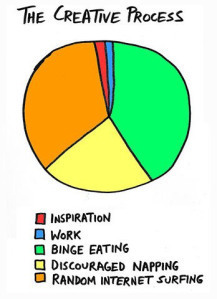
As a writer there are times when you don’t get as much done as you like; life and other work commitments get in the way, and a few days may go by without you doing anything at all. I’m not talking about that today. I’m talking about when you have been working on a writing project – whether it be research, planning, writing or editing: or a combination of them. When you’ve been working and when the end of the day comes you feel – ‘What on earth have I done today?’
When you’ve worked all day – or for as much of the day as you possibly can – and have nothing really to show for it.
You know you have done something but you don’t feel that there’s any prove to back this up.
And this is not just a writer’s problem. My other half said to me last night, basically the thing I’m suffering with this week, that he’s been working all day, time has flown by and yet what has he actually done. So I know I’m not alone in this. The solution to not having done anything is simple: do something. But what if you have. The solution for the feeling of non-production is a little trickier; its psychological.
So I’m compiling a list explaining to myself what to do.
One. Don’t worry so much.
Two. Sit back at the end of each day and make a mental list of what you have actually achieved.
Three. Sit back and think of what you wanted to achieve – these lists are probably not as dissimilar as you think – and if they are – think about how to achieve the points on your list and get on and do them.
Four. Don’t worry so much. You’ve done more than you think you have.
The reason for my ‘unproductive blues’: I’m in the middle of things. I’m in the middle of editing. I’m in the middle of researching and planning the next project. Another solution is just to concentrate on one project at a time. But that’s not me. I’m not at the writing stage of both projects. Just at the beginning and end of each. It’s the ‘in the middle’ phase that is the most difficult stage. With nothing to show (as yet) for your efforts it is a little demoralising. But you’ve got to stride over the middle before you see the finish line.
Filed under: Uncategorized Tagged: creative process, psychology, unproductive, writing


March 11, 2014
Hollywood’s History: Bonnie and Clyde
Bonnie and Clyde (1967)
Director: Arthur Penn
Cast: Warren Beatty; Faye Dunaway
Bonnie Elizabeth Parker and Clyde Chestnut Barrow were American outlaws and robbers from the Dallas area who travelled the central American states with their gang during the Great Depression, robbing banks, grocery stores and rural gas stations. They left behind them a dozen or so murders in their wake as they fled from the authorities. Media hype surrounded their exploits at a time of the ‘public enemy era’ of 1931 and 1934.
The 1967 film itself is a somewhat romanticized account of the pair, and strictly speaking wasn’t intended to be viewed as a historical film. The film is heavily influenced by the issues surrounding the 1960s, for example women’s liberation and youth revolt, and as a result takes quite a few artistic liberties with the history.
In the film it is unclear who is leading whom astray. The opening scene of a half-naked Faye Dunaway, laying on the bed with the camera looking through the railings of the bed, suggests Bonnie’s discontent with her life. Until she meets Clyde who she stops as he attempts to steal her mother’s car. She is instantly attracted by him and is further intrigued rather than scared when he reveals his armed robbery past. Stroking his gun in an obviously sexual moment, she taunts him – “You wouldn’t have the gumption to use it”. With that simple taunt Clyde embarks on a life of crime again.
Clyde uses mental persuasion rather than sexual ploys to keep Bonnie with him, and finds it easy to control her, for example telling her fairly brusquely to get rid of the spit-curl on her cheek, which she does without question. He has seemed to instil his authority over her.
However, to a 1960s audience wrapped up in the Women’s Movement era, this would not be fully acceptable. With not having a conventional sexual relationship Bonnie is unable to bend Clyde to her will through sex, so instead she seems to hit upon his masculinity – or lack of – and subtly challenges him to embark upon increasingly deadly crimes. In one final scene when the couple are driving unknowingly to their deaths, Bonnie reaches to the back seat and brings a pear which after biting into she hands it to Clyde to take a bite. Clearly, according to Nancy F. Cott, this Eve has led Adam astray.
Apart from the film being a more romantic version of the history, several other mistakes or omissions are made. The fact that Clyde is extremely close to his mother and sister is not only mentioned, these characters are simply left out. The taunting of Frank Hamer did not happen. While he was involved in their case, he was never personally humiliated by them. The purpose for this change? Probably for Bonnie to assert her place as a liberated woman, free to taunt even figures of authority, including openly kissing him on the lips: not doubt a popular symbol for 1960s America, which included women claiming their own right to free sexual and political expression.
Another element in the film that was tweaked was Bonnie and Clyde’s apparent Robin Hood nature and the sympathy with the dispossessed. In reality they showed little remorse and little sympathy, and Clyde was careless and remorseless in his killings. In fact, it was ‘Public Enemy Number One’ John Dillinger who conducted mainly high-class heists and tried to avoid killing.
As a historical movie it doesn’t quite wash, there’s simply too many 1960s influences in a film set in the 1930s, including Bonnie’s make-up. But as a film, it is clear to see how it influenced directors today, including the likes of Quentin Tarantino, whose works, like Penn’s Bonnie and Clyde, have been heavily criticised for the use of violence and graphic brutality. Penn defended his work saying that eliminating the violence would be ‘like eliminating one of the primary colors from the palette of the painters.’ And I agree without the violence the film would be too ‘cute’. And furthermore, as a film, representing the changes going on in the western world in the 1960s, especially for women and with the increasing use of the public political voice against the likes of things like the Vietnam War, it is a brilliantly made, ground-breaking film.
With thanks to Bonnie and Clyde; Nancy F. Cott in Past Imperfect: History According to the Movies; edited by Mark C. Carnes, for valuable insights.
Filed under: Uncategorized Tagged: bonnie and clyde, Faye Dunaway, film review, Hollywood, movies, outlaws, past imperfect, violence in films, Warren Beatty


March 6, 2014
A new app that lets you read faster! What ever next?
Check this out: a new app has been created that will enable you to read novels faster. Now I’m really not sure about this myself, check out the link which includes some images (like below) that let you try this for yourself.
I tried it and while you do end up reading each word faster, the meaning is lost. You’d lose any enjoyment in reading a cleverly and beautifully created sentence. The words flash by your eyes, enabling you to read at a whopping 500 words per minute, leaving no time literally for you brain to decode what word you’ve just read.
What do you think?
Filed under: Uncategorized Tagged: app, novels, reading, spritz, technology


March 4, 2014
Maybe I should have gone to university a few years later…..
As you can see from the title of this blog, I’ve been thinking a fair bit about, maybe I should have gone to university a few years later. Or maybe we all should.
1. We come straight out of full time education at school where we’ve been since the age of 5, and straight into full time university education. There’s not much breathing space. In hindsight, I’m like, ‘hey give me a rest! I need a bit of time to do something…..different. To break the cycle of education and learn for yourself through life.’
2. Granted it can be a good learning curve. You out of your parents home for the first time and in – almost – complete control of your life. You don’t have your mum there to wake you up in the morning to make sure you get to your lectures on time. You have to pay for rent, bills and food. You have to cook and clean. Wash clothes and iron. Manage your own time. And go to lectures. This can be done through going out and working though too.
3. You’ll probably be less inclined to hit the pub as hard or as often as those free from their parents do the moment they get to university. Hopefully, you’d be a little older and a little wiser….I certainly couldn’t drink as much as I used to.
4. If you’re not an overly outgoing person, like I used to be when I first went to university, then your time in seminars can be impacted. Sure I knew the stuff but I never had the confidence to speak out – and when I did it was only to say a sentence or two. Now, a little older, and having worked, I’m more confident actually talking to people I don’t know or being sort of in the lime light.
5. I know more now. I’ve read more, I understand more. I watch and read more news. I’m more interested in politics and the world around me. I read more history, for one, something I didn’t really have time to do at school before university.
However,
1. You get out of the habit of learning.
2. You get out of the habit of researching and writing essays.
3. You may keep saying I’ll go next year, and keep putting it off and off (like cleaning that oven…which I’ll do…another day). It’ll may end up being another day or another year, until it’s too late. And least straight after school is a better time as your already in the zone to get the application done – teachers help, and let’s face it, your life hasn’t really started yet.
4. I’m saying I’ve read more, but I only read what I ended up enjoying studying about at university in the first place. and only then did I realise my specialism in my final year. And so this is said only with the benefit of hindsight about a) what I’m interested in and b) what is actually taught at the university of your choice. A subject like history is so vast in its specialisms that you may not study what’s interests you the most until your final year – like me.
5. And being older is no guarantee that you will be any wiser when it comes to hitting the bars.
Oh. 5 versus 5. Tricky. I think for me, if I could go to university now, rather than when I did, attending the same university and studying the same subjects, then I think I could do better. But hindsight is a marvellously wonderful thing.
But one thing is for sure, I mustn’t get hung up on it…………
Filed under: Uncategorized Tagged: college, degree, drinking, lectures, school, seminars, student, student culture, university


February 28, 2014
History versus historical fiction
The other day I came across an opinion. That historians can’t write historical fiction. And historical fiction writers can’t write history non-fiction.
I was deeply disturbed by this, as at the moment, that’s exactly what I’m doing.
If you write historical fiction, surely you’re doing historical research. So surely you’re a historian too. Granted you might not be an academic historian, but an amateur one. And if you write historical fiction surely you love history – why else would you write historical fiction?
Basically the person was saying that historians haven’t got a creative mind. That they find it too difficult to separate the non-fiction history from creating a fictional story. However I believe that they have a unique place in the creation of historical fiction. One. They have read so much of the history of their period including small anecdotal stories of the histories of real people who would be fascinating if it were turned into historical fiction. Two. They’ve done all their research already, and Three, historians are used to researching and they’re used to writing. They’re used to using language to formulate ideas. These arguments can basically be turned and work for historical fiction authors writing non-fiction.
As you can tell I completely disagree with that opinion – I have to – I’m doing it. The opinion is invalid in my opinion. Moreover, historians probably do like to read historical fiction – I do. And while I’m not an academic historian, I do have a degree in it and I am working on a non-fiction project at the moment.
What’s more, this argument fails further when turned to other genres. Crime, for instance, a lot of crime/thriller authors have a background in the police, pathology, or forensics. Tess Gerritsen for instance left a successful medical practice to write full-time, and David Baldacci draws on his legal experience when he worked as a corporate lawyer.
I simply don’t see how the argument was valid. And I was disappointed that someone can have such a closed mind and disregard people’s hopes of practising both sides of history. People are capable of more.
Filed under: Uncategorized Tagged: authors, historians, historical fiction, history, rant, writing


February 26, 2014
A crucial element of a book – the cover
As I’ve said in previous posts, I’m in the midst of editing my second novel, so naturally soon I’ll be looking at designing my own front cover. So I’ve been looking at book covers I like to get ideas about what I should do and what works, and naturally looking at book covers that really DO NOT work.
This website basically has every book cover by self-published writers which are, as the name of the site suggests, lousy. It’s such a shame that people do neglect their front cover. It’s an advertisement to what’s inside, whether they like it or not. I’ve picked some from this site, which are far from the worst, just for you to see.
http://lousybookcovers.tumblr.com/archive
Having said this, self-published writers can design their own front cover. But the trick is not to rush through it. I’m pretty happy with my first and so I’ll give it another go for my second. It did take several attempts and work through, and both major and minor edits to get the finished book cover that I wanted.
This collection is what not to do.
But they’re not all that bad….
Nominate any book covers that you know of by self-published writers. If possible ones that they’ve done themselves, but if not it doesn’t matter. I hope that I won’t be proven wrong that self-published writers can – and do – have a decent book cover.
Filed under: Uncategorized Tagged: book art work, book cover design, book covers, design, indie, lousy book covers, self-published


Louise M.H. Miller's Blog
- Louise M.H. Miller's profile
- 18 followers


